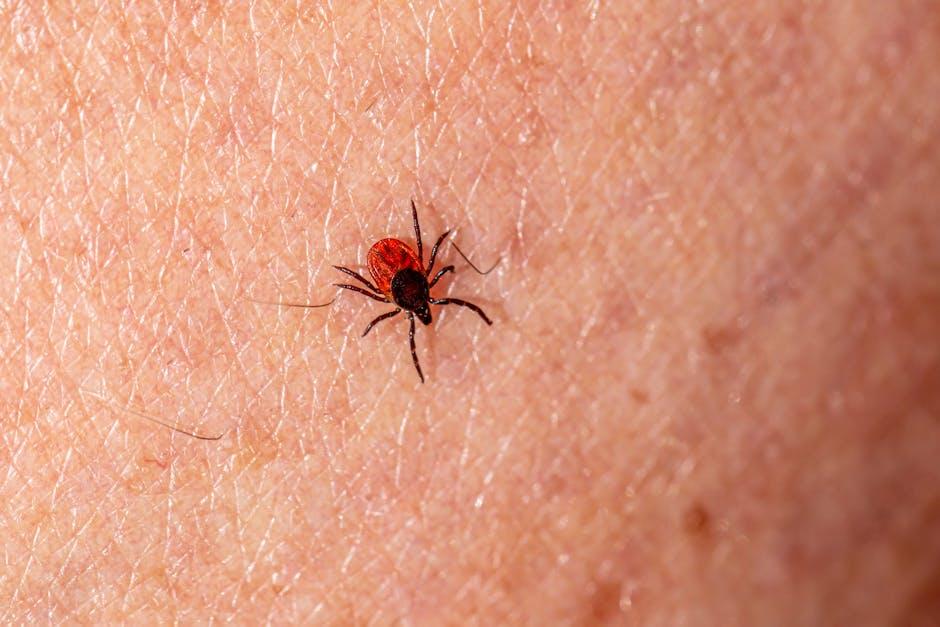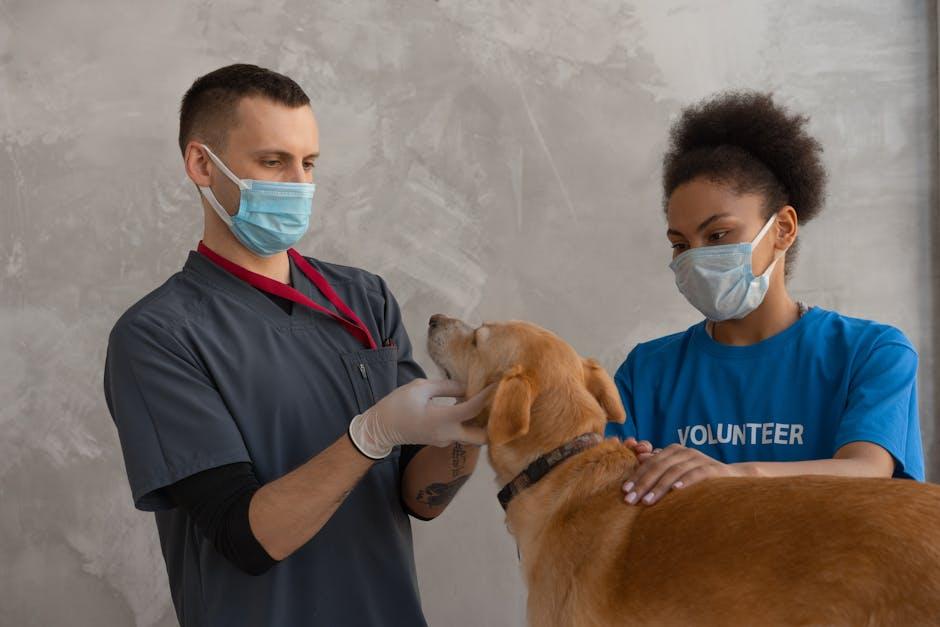Welcoming a new puppy into your home is an exciting and heartwarming experience, filled with wagging tails, playful antics, and boundless affection. As you embark on this delightful journey, it’s essential to ensure your furry friend’s health and well-being are prioritized from the very start. One crucial aspect of caring for your puppy is safeguarding them against parasites, which can pose serious health risks if left unchecked. In this guide, we will share effective and up-to-date parasite prevention tips tailored for this year, empowering you to protect your beloved companion with confidence. Let’s work together to create a safe and healthy environment for your puppy to thrive, ensuring their early days are as joyful and carefree as possible.
Understanding Common Puppy Parasites and Their Impact
Our furry friends, especially puppies, are naturally curious, which unfortunately makes them prime targets for parasites. These tiny invaders, ranging from intestinal worms to external pests like fleas and ticks, can significantly impact a puppy’s health. Common symptoms include diarrhea, weight loss, and anemia, and if left untreated, some parasites can even lead to more severe health issues. Puppies are particularly vulnerable due to their developing immune systems, so understanding the signs and preventive measures is crucial for every pet owner.
To safeguard your puppy’s health, it’s essential to implement a proactive approach. Here are some effective tips:
- Regular Vet Check-Ups: Schedule frequent visits to monitor and prevent any potential parasitic infections.
- Maintain Hygiene: Keep your puppy’s living area clean and dispose of feces promptly to prevent contamination.
- Use Preventive Medications: Consult your vet for recommended treatments and ensure they are administered consistently.
- Monitor Diet: Provide a balanced diet to boost your puppy’s immune system and resist parasitic attacks.
- Avoid Uncontrolled Environments: Limit exposure to areas with high parasite risks, such as dog parks or wooded areas.
By taking these steps, you’ll not only help protect your puppy from the discomfort and dangers of parasites but also ensure they grow up happy and healthy.

Creating a Tailored Parasite Prevention Plan for Your Puppy
To ensure your puppy remains healthy and vibrant, it’s essential to develop a personalized plan to combat parasites. This involves understanding the specific risks based on your location and lifestyle. Start by consulting with your veterinarian to identify common parasites in your area, such as fleas, ticks, and worms, and discuss the best prevention strategies. Regular vet check-ups are crucial to keep your puppy’s health in check and to update your prevention plan as needed. Additionally, maintaining a clean living environment is key—vacuum regularly, wash your puppy’s bedding, and keep outdoor areas tidy.
Incorporate the following elements into your puppy’s parasite prevention plan:
- Monthly treatments: Use vet-recommended topical or oral medications to ward off fleas and ticks.
- Heartworm prevention: Administer preventative medications as prescribed, especially in areas where heartworm is prevalent.
- Regular grooming: Brush your puppy’s coat and check for signs of parasites, like flea dirt or ticks.
- Diet and hydration: Provide a balanced diet and fresh water to support your puppy’s immune system.
Remember, each puppy is unique, so a one-size-fits-all approach won’t do. By tailoring your plan to your puppy’s specific needs, you ensure they have the best protection possible against parasites. Your furry friend will thank you with plenty of tail wags and happy barks!

Effective Home and Outdoor Strategies for Parasite Control
Maintaining a healthy environment both inside and outside your home is crucial in the fight against parasites. Start by keeping your living space clean and tidy. Regularly vacuum carpets and upholstery, and wash your puppy’s bedding in hot water to eliminate any hidden pests. Seal cracks and crevices around windows and doors to prevent parasites from sneaking inside. Consider using pet-safe insect repellents and natural deterrents, such as diatomaceous earth, which can be sprinkled in areas prone to infestations.
When it comes to the outdoors, focus on creating a parasite-free zone. Mow your lawn regularly and trim overgrown bushes to minimize hiding spots for ticks and fleas. Remove any standing water to reduce mosquito breeding grounds. You might also want to introduce beneficial nematodes to your garden soil, which can naturally control flea populations. invest in protective gear such as fleas and tick collars for your puppy, ensuring they remain shielded during outdoor adventures.
- Vacuum regularly and wash bedding.
- Seal entry points like windows and doors.
- Use pet-safe insect repellents.
- Maintain a well-kept yard and garden.
- Remove standing water to prevent mosquitoes.
- Consider flea and tick collars for outdoor protection.
Selecting the Right Products for Safe and Reliable Parasite Prevention
When it comes to keeping your puppy healthy, choosing the appropriate parasite prevention products is crucial. Begin by consulting your veterinarian to determine the most effective options tailored to your puppy’s specific needs. Consider factors such as age, breed, weight, and lifestyle to ensure a personalized approach. Topical treatments, oral medications, and collars are among the popular choices available, each offering unique benefits and coverage. Prioritize products that protect against a wide range of parasites, including fleas, ticks, heartworms, and intestinal worms.
- Safety: Verify that the product is approved by veterinary authorities and is suitable for puppies.
- Efficacy: Opt for products with proven results and positive reviews from other pet owners.
- Ease of Use: Choose options that fit seamlessly into your puppy’s routine without causing stress or discomfort.
- Frequency: Be mindful of how often treatments need to be applied and ensure it aligns with your schedule.
Remember, the right prevention strategy not only protects your puppy but also contributes to their overall well-being, allowing them to explore the world with confidence and joy.
Insights and Conclusions
safeguarding your puppy from parasites is an essential part of ensuring their health and happiness throughout the year. By staying informed about the most effective prevention strategies and maintaining a regular schedule for check-ups and treatments, you can provide your furry friend with the protection they need. Remember, a proactive approach not only keeps parasites at bay but also strengthens the bond you share with your puppy as you nurture them in a safe and loving environment. As you embark on this journey of pet parenthood, may these tips serve as a guiding light in keeping your puppy healthy and your home a haven of joy and companionship.
















